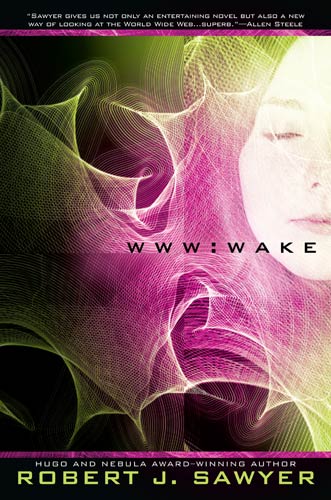Helen Keller paper
by Rob - October 30th, 2013.Filed under: Academics, Wake, Watch, Willett, WWW.

The 1996 paper “Helen Keller as Cognitive Scientist” was one of my inspirations for writing my WWW trilogy of Wake, Watch, and Wonder, about a formerly blind girl gaining sight via a post-retinal implant — while a nascent consciousness evolving on the World Wide Web learns to see the world through her.
The paper’s author is philosopher Justin Leiber, the son of famed science-fiction writer Fritz Leiber.
The linked PDF is an OCR scan of the paper, provided by Prof. Leiber; here’s the abstract:
Nature’s experiments in isolation — the wild boy of Aveyron, Genie, their name is hardly legion — are by their nature illusive. Helen Keller, blind and deaf from her 18th month and isolated from language until well into her sixth year, presents a unique case in that every stage in her development was carefully recorded and she herself, graduate of Radcliffe College and author of 14 books, gave several careful and insightful accounts of her linguistic development and her cognitive and sensory situation. Perhaps because she is masked, and enshrined, in William Gibson’s mythic and false _Miracle Worker_, cognitive scientists have yet to come to terms with this richly enlightening, albeit anecdotal, resource.
[The William Gibson mentioned above is, of course, the playwright, not the author of Neuromancer.]
Robert J. Sawyer online:
Website • Facebook • Twitter • Email


April 13th, 2018 at 11:36 am
This is my second reading of this trilogy and I am happy to be re-reading it. There are so many different issues touched upon that I missed most of them the first time while attempting to concentrate on the main thread. For starters there is a compelling look at China’s attempt to deal with an airborne virus like SARS. Then there is the medical aspect including a look at “The Origins of Consciousness in the breakdown of the Bicameral Mind” by Julian Jaynes. We are also exposed to economics, game theory, theoretical physics, math, and finally the world wide web and artificial intelligence. Rob wrote this ten years ago, yet it is still replete with pertinent, compelling and fascinating issues relevant to our world in 2018.